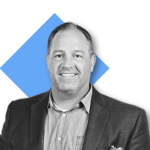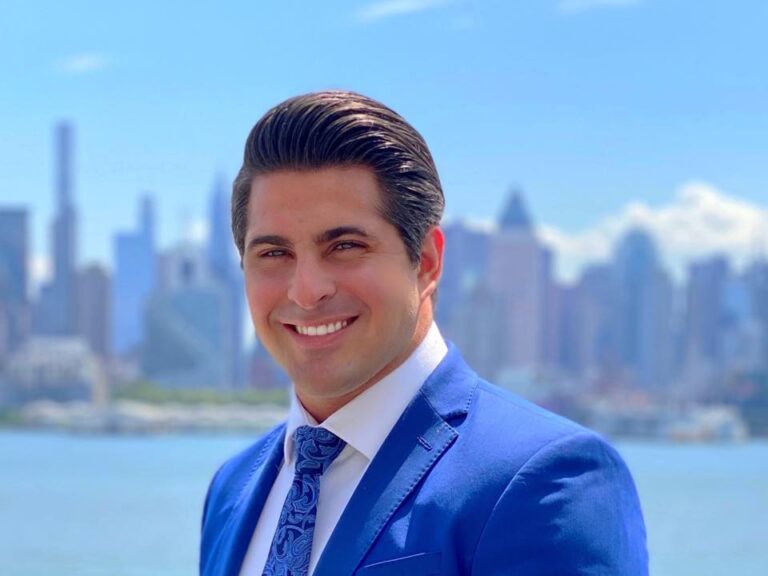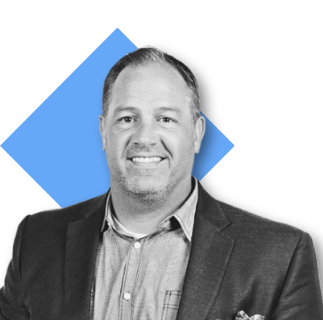Jeremy Shiner is the Founder and CEO of Myriad Systems, a company built on a simple belief: private practices are worth protecting. They are the last place in healthcare where patients are treated as people, not numbers, and Jeremy’s mission is to ensure they remain that way. Raised in a family deeply rooted in healthcare payments, Jeremy learned early how financial systems can either empower or suffocate independent providers. After more than a decade working in healthcare payments and practice operations, he launched MediPay in 2020 to reimagine how private practices collect patient payments and stay financially healthy.
As the challenges facing independent practices expanded, so did his vision. MediPay evolved into Myriad Systems, unifying healthcare-exclusive payment processing, care-driven AI, and integrated EHR and RCM solutions (Myriad Health and Myriad MedBill) into a mission-driven ecosystem designed solely for independent practices. Jeremy speaks and writes about the role of technology in restoring autonomy to clinicians and preserving private practice as the backbone of patient-centered care and the small-business economy.
Company: Myriad Systems
We are thrilled to have you join us today, welcome to ValiantCEO Magazine’s exclusive interview! Let’s start off with a little introduction. Tell our readers a bit about yourself and your company.
Jeremy Shiner: I founded Myriad Systems with a simple but urgent belief: private practice is worth protecting. It’s the last place in healthcare where patients are treated as people, not data points. Yet the system has made it nearly impossible for independent doctors to survive, let alone thrive.
My journey began long before Myriad Systems. I grew up in a family deeply rooted in healthcare payments, and I spent more than a decade working closely with private practices. I saw the same story everywhere: doctors losing autonomy, drowning in admin work, and watching corporate healthcare strip away the human side of care.
I started MediPay in 2020 to fix a core problem that no one else seemed willing to solve: helping practices get paid fairly and compliantly without adding more burden. As the challenges grew, so did the vision. MediPay became Myriad Systems: a mission-driven ecosystem that combines healthcare-exclusive payment processing, a human-centered EHR, and AI that gives doctors their time and freedom back.
We’re not building technology for the system. We’re building tools that give private practices a fighting chance and ultimately, the advantage.
What was the initial spark that motivated you to take on an industry dominated by giants, and how did you identify a viable opportunity to compete?
Jeremy Shiner: The spark came when I recognized a painful truth: the systems built to “support” private practices were actually draining the humanity out of healthcare. Independent doctors were losing control over how they care for patients, buried under administrative demands, and still fighting to get paid for work they had already delivered. As large corporate healthcare groups expanded, patient care became more transactional and impersonal.
To me, that wasn’t just a business gap; it was a crisis. If nothing changed, private practice would continue to disappear, and with it, the last safeguard of truly human healthcare. Patients would be processed, not cared for.
With my background in healthcare payments, I saw the core issue clearly: it wasn’t a lack of technology; it was a lack of empathy, customization, and genuine listening to the people delivering the care. The industry was optimizing for scale, not for humanity.
I didn’t set out to “compete” in the industry; I set out to rebuild the model so independent doctors could stay independent, financially strong, and free to practice medicine with humanity at its core.
Can you describe the most critical strategy or innovation you implemented to differentiate your business from the industry leaders and gain traction?
Jeremy Shiner: The biggest differentiator was choosing to build technology around people, not around the system. Most healthcare technology is designed for billing codes, insurers, and compliance checkboxes. It was never built for doctors or patients, which is why it feels cold, rigid, and exhausting to use.
Our strategy flipped that model entirely. We built solutions that protect the humanity of care first and then layered elite technology around it. That means AI that gives doctors their time back, not AI that turns them into data clerks. It means workflows designed around the doctor-patient relationship, not insurance reimbursement logic.
And unlike the industry leaders, we focus exclusively on private practices. Not hospitals, not enterprise health systems, just independent providers. Their needs and values are different, and they deserve a system built specifically for them.
We integrated the entire ecosystem – payments, EHR, RCM, and patient financial engagement – into one connected spine. We’ve introduced tools including MyScribe AI, which is Myriad Health’s built-in AI charting assistant that turns brief inputs into structured, speciality-tailored clinical notes, and Myriad Motion, an intuitive, all-in-one setup and training wizard that simplifies each step so providers can focus on patient care. When practices experience empathy and tech and integration in one place, the impact is transformative.
How did you handle the resource disparities such as funding or market access when going up against much larger competitors?
Jeremy Shiner: We never tried to play the same game as the industry giants. That’s where most challengers lose. Instead of chasing big funding rounds or trying to outspend incumbents, we focused on building a model that actually serves private practices better.
Large healthcare companies are built for scale. They need massive capital because they build complex systems for hospitals, insurers, and enterprise health networks. We intentionally chose a different path. We built lean, human-centered technology exclusively for independent practices, which allowed us to grow organically, stay close to our clients, and evolve quickly based on real conversations and not investor pressure.
Resource disparities became an advantage. While others were planning five-year roadmaps, we were talking to doctors every day, listening, adapting, and shipping solutions that actually removed their burden. That speed, proximity, and empathy is something money can’t buy, and it’s something the giants can’t replicate.
We don’t measure success by funding raised. We measure it by autonomy protected, time returned to doctors, and private practices that stay independent because of what we’ve built.
What was the biggest setback or direct confrontation with an industry giant, and how did you turn it into a turning point for your success?
Jeremy Shiner: One of the earliest challenges wasn’t a dramatic showdown; it was the industry’s quiet confidence that we would fail. Large vendors dismissed our model outright. We were told, “private practices won’t adopt anything new,” and “integrating payments, EHR, and RCM for independents just isn’t how the system works.”
That reaction was revealing. It showed us that the system wasn’t built for doctors or patients, it was built to preserve a structure that keeps private practices dependent, fragmented, and overwhelmed. The resistance wasn’t about feasibility. It was about protecting a status quo that benefits from complexity and burnout.
The turning point came when practices began proving the narrative wrong. Once doctors saw that an integrated, human-centered model gave them back hours of their day, increased collections, and restored autonomy, word spread fast. The very assumptions used to dismiss us became the strongest validation that change was overdue.
The industry told us change wasn’t possible. Practices proved otherwise.
What’s one mindset or principle that kept you grounded while taking on industry titans, and how can other founders adopt it to compete?
Jeremy Shiner: The mindset that grounded me from the start was this: protect the humanity of what you’re fighting for and let that guide every decision. I don’t see private practice as a business model. I see it as a more human, more natural way to care for people. If we lose that, we lose something irreplaceable.
I never set out to “beat” the industry giants. Competing with them isn’t the goal; building what they won’t is. The big players optimize for systems, scale, and revenue. We chose to optimize for people. That clarity kept us aligned, even when the path was harder or slower.
Founders often underestimate the power of purpose. When you’re fighting for something that genuinely matters, like keeping independent healthcare alive, you don’t need constant motivation. You need commitment. Some things are worth protecting, even when the odds suggest you shouldn’t bother.
My advice to other founders is simple: Don’t build to win a market. Build to change what’s broken. If your mission serves people first, traction and growth will follow. My goal moving forward is to keep building technology that helps doctors stay independent and keeps care human.






